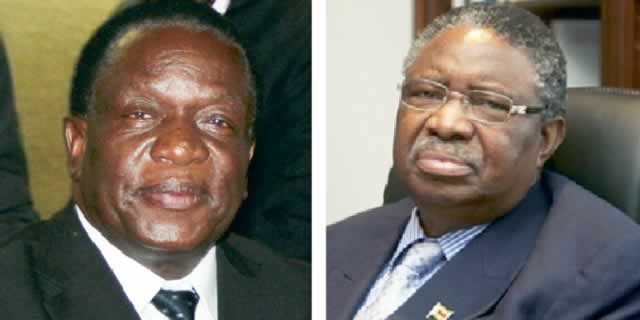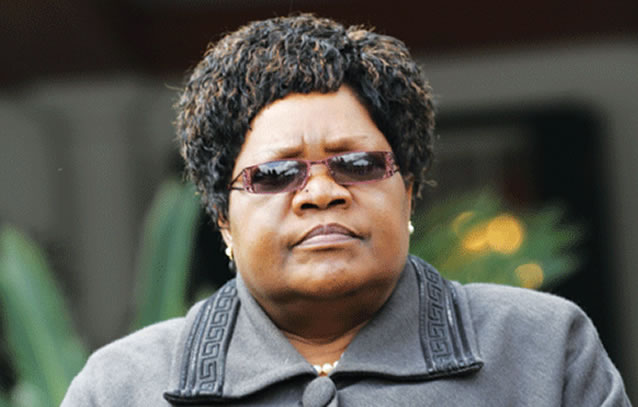VPs debate: Case for swift re-alignment of laws


Dr Itayi Garande Correspondent
HARMONISATION of existing legislation with the Constitution of Zimbabwe is a difficult, expensive and laborious process. All the offending and relevant laws should be realigned. South Africa is still aligning some of its laws although its constitution was finalised in 1996. In the United States, since the 27th Amendment was approved in 1992, after a 200-plus year wait, there has not been another amendment ratified.
An overhaul of the constitution in a short space of time creates legal problems. The executive thus tends to prioritise those laws that are in line with government programmes.
In a country like Zimbabwe with a critical shortage of staff, especially in the legal drafting section of the Attorney-General’s Office, the problems are compounded. The few members of staff who are already overworked, have a mountain of legal amendments that need to be made.
There is an ongoing debate on whether President Mugabe erred in not declaring that there was a vacancy in the National Assembly, arising from the appointment of Honourable Joice Mujuru on September 11 2013 as Vice-President.
There is also the argument that after the more recent appointment of Honourable Emmerson Mnangagwa on December 12 2014, to the Vice-Presidency of Zimbabwe, there is another vacant parliamentary seat.
In an article published in The Herald this week, Dr Alex Magaisa argued that:
In terms of s. 129(1) (c) of the Constitution, when an MP is appointed to the position of Vice President, his or her seat becomes vacant. This vacancy arises by operation of the law.
There was a need to have by-elections to fill these vacancies pursuant to s. 158(3) of the Constitution.
Since there had been no by-election following the vacancy in former Vice-President Mujuru’s old constituency, there was an on-going breach of the Constitution.
The main issue to consider when looking at these three points is to look at the Sixth Schedule to the new Constitution which allows for “transition to the new constitutional order” or the re-alignment of the old and new laws, like the law on appointment of Vice-Presidents.
Former Vice-President Mujuru was first appointed by President Mugabe on December 6 2004.
Her most recent appointment was in July 2013 when Zanu-PF won the general election.
The new Constitution has both provisions for the appointment of Vice-Presidents under s. 14 (1) and s. 14(2) of the Sixth Schedule, s. 129(1) (c) and election of them concurrently with the President, under s. 92(1)(2)(3).
In the new Constitution a general election is defined under Section 332 (a) on Interpretation as including the election “of the President, Vice-Presidents and Members of Parliament”. Section 92(3) specifically says: “The President and the Vice-Presidents are directly elected jointly by registered voters throughout Zimbabwe, and the procedure for their election is as prescribed in the Electoral Law.”
The old law on appointment of Vice-Presidents, that is Section 31(c)(1) of the old Constitution, states that, “Vice-Presidents . . . shall be appointed by the President.” This has been incorporated into the new law as a 10-year transitional arrangement under s. 14 of the Sixth Schedule.
The Sixth Schedule is a very important interpretative instrument in that, in the event of any inconsistency in the law, it takes precedence over any provisions of the Constitution. Section 2 of the Sixth Schedule reads: “This Schedule prevails, to the extent of any inconsistency, over all other provisions of this Constitution.”
As former Vice-President Mujuru was appointed, not elected, she would have held her office under s. 14 of the Sixth Schedule beyond the effective date of the new Constitution.
The effective date ? the day on which the new Constitution comes into operation ? is “the day on which the President elected in the first elections assumes office” according to paragraph 3(2) of the Sixth Schedule of the new Constitution. This date was August 22 2013, the date the President was sworn in after the last election.
Dr Magaisa argues that “in terms of s. 129(1) (c) of the Constitution, when an MP is appointed to the position of Vice President, his or her seat becomes vacant”. This section, read in the spirit of the law, refers to elected Vice-Presidents, not appointed ones.
Former Vice-President Mujuru and Vice-President Mnangagwa were not elected, but appointed under s. 14 of the Sixth Schedule so their National Assembly seats do not become vacant by operation of the law.
Section 129(1)(c) should be read with s. 92 on election of Vice-Presidents, and s. 14(1) of the Sixth Schedule which says:
“Notwithstanding Section 92, in the first election and any presidential election within 10 years after the first election, candidates for election as President do not nominate persons in terms of that section to stand for election as Vice-Presidents.”
Section (14)(2) of the Sixth Schedule further adds: “Without delay the person elected as President . . . must appoint not more than two Vice-Presidents, who hold office at his or her pleasure.”
In other words, Vice-Presidents can be appointed by the President under the new Constitution. This is a transitional arrangement, dubbed a “special provision for election and tenure of first President and appointment of Vice-Presidents”.
This effectively gives the President the option to appoint two Vice-Presidents, in which case they remain as Members of Parliament. If they get elected, then their parliamentary seats become vacant by operation of the law.
The logic is that one cannot retain two elected positions – as Vice-President and as Member of Parliament. The President, for example and using the same argument, is not an elected Member of Parliament.
The seat formerly held by former Vice-President Mujuru, therefore, did not become vacant when she was appointed on September 11 2013. It would have only been vacant if she had been elected by the people as Vice-President.
What Dr Magaisa refers to as the “on-going breach of the Constitution” would have been true if we were applying s. 129(1)(c) and s. 92 only. There is no breach when applying s. 14(1) and s. 14(2) of the Sixth Schedule, which “prevails, to the extent of any inconsistency, over all other provisions of this Constitution”.
Therefore, Vice-President Mnangagwa can still retain his National Assembly seat as he was appointed under s. 14(2) of the Sixth Schedule.
The two Vice-Presidents took their oath before the President because they were appointed by him. If they had been elected, their oath would have been before the Chief Justice as required under s. 94(1) pertaining to the Assumption of office by President and Vice-President. The section reads: “Persons elected as President and Vice-Presidents assume office when they take, before the Chief Justice or the next most senior judge available.”
The Government is currently working on over 450 pieces of legislation to align them to the Constitution. Finance Minister Patrick Chinamasa lamented the slow re-alignment process while presenting the latest Budget. He noted that only three laws were successfully aligned in the last session of Parliament.
The drafters of the new Constitution were pragmatic in allowing transitional arrangements through the Sixth Schedule.
If we, however, are to ensure full compliance with the letter and spirit of the Constitution and promote a culture of constitutionalism, while getting rid of claw back clauses in the Constitution, we need swift re-alignment of new laws. This is an ideal that is not always possible without sufficient resources and clear monitoring tools to monitor the extent to which the bodies given charge over specific constitutional issues are complying with what is required of them by the Constitution.
Dr. Itayi Garande writes from the United Kingdom. He can be reached via [email protected] <mailto:[email protected]>.








Comments